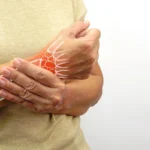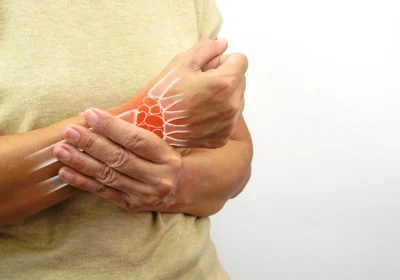
5 Different Types Of Dental Prosthesis Equipment | Facts And Comparision
Dental prostheses are devices designed to replace missing teeth or provide support to existing teeth. They are an essential tool in dentistry and help patients restore their smile, speech, and chewing ability. There are several types of dental prosthesis equipment available, each with its unique advantages and disadvantages.
This blog will explore the five most common types of dental prosthesis equipment and compare their features.
Dental Implants
Dental implants are one of the most famous types of dental prosthesis equipment. They are artificial tooth roots that are inserted into the jawbone and used to support a replacement tooth. Dental implants are made of titanium and are highly durable. They are also highly biocompatible, which means that they are unlikely to be rejected by the body. Dental implants are a great option for patients who are looking for a permanent solution to tooth loss.
Dental Bridges
Dental bridges are another type of dental prosthesis equipment. They are used to replace one or more missing teeth and are held in place by neighboring teeth. Dental bridges can be made of a variety of materials, including porcelain, ceramic, and metal. They are a good option for patients who are looking for a less invasive solution to tooth loss.
Dentures
Dentures are removable dental prosthesis equipment that are used to replace multiple missing teeth. They are typically made of acrylic or porcelain and are designed to fit easily over the gums. Dentures could be full or partial, depending on the extent of tooth loss. They are a good option for patients who are looking for a non-invasive solution to tooth loss.
Inlays and Onlays
Inlays and onlays are types of dental prosthesis equipment that are used to repair damaged or decayed teeth. They are made of composite resin or porcelain and are designed to fit easily into the damaged area of the tooth. Inlays and onlays are a good option for patients who are looking for a conservative solution to tooth decay.
Veneers
Veneers are thin covers that are bonded to the front of natural teeth with the intention of improving their look. They are typically made of composite resin or porcelain and can be used to correct a variety of cosmetic issues, including chipped, cracked, or stained teeth. Veneers are a good option for patients who are looking for a cosmetic solution to dental issues.
Here’s a table summarizing the comparison between the five different types of dental prostheses:
| Prosthesis Type | Description | Advantages | Disadvantages | Cost |
| Dental Implants | Artificial tooth roots placed in the jawbone | Permanent solution, can last a lifetime | Requires surgery, higher cost | $3,000 – $4,500 per implant |
| Dentures | Removable appliances with artificial teeth attached to a base that fits over the gums | Easy to remove and clean, less invasive than implants | May require adjustments, may slip or shift during use | $600 – $8,000 per set |
| Bridges | Artificial teeth attached to adjacent natural teeth or implants | More stable than dentures, less invasive than implants | May require removal of healthy tooth structure | $2,000 – $5,000 per unit |
| Inlays/Onlays | Custom-made fillings that fit into a cavity or on the surface of a tooth | Preserve healthy tooth structure, durable | Requires two appointments to complete | $650 – $1,200 per tooth |
| Veneers | Thin covers that are bonded to the front of natural teeth | Improve the appearance of teeth, can correct minor imperfections | May require removal of healthy tooth structure | $800 – $2,000 per tooth |
Conclusion
In conclusion, providing dental care for patients with disabilities requires a patient-centered approach that takes into account their unique needs and challenges. Dental professionals must provide accessible and communicative care to ensure that all patients receive the treatment they need to maintain good oral health. If you are looking for specialized dental services, such as dental labs NYC or ‘denture labs near me’, many options are available to help meet your needs. By prioritizing the needs of patients with disabilities and working with caregivers and specialized services, we can ensure that everyone has access to quality dental care.
FAQs:
Q. How do I find a denture lab near me?
- There are several ways to find a denture lab near you. You can search online using keywords such as “denture lab near me” or “dental labs nyc.” You can also ask your dentist for a referral to a trusted lab in your area.
Q. What is the lifespan of dental prostheses?
- The lifespan of dental prostheses varies depending on the type of prosthesis, how well it is cared for, and the patient’s oral health. Dental implants can last a lifetime, while dentures may need to be replaced every 5-10 years. Inlays, onlays, and veneers can last up to 10-15 years with proper care.
Q. Are dental prostheses covered by insurance?
- Many dental insurance plans cover the cost of dental prostheses, although the amount of coverage may vary depending on the plan. It is crucial to check with your insurance provider to determine your coverage.
Q. How do I care for my dental prostheses?
- Proper care of dental prostheses is essential to maintain their durability and longevity. This includes daily brushing and flossing, regular dental checkups, and avoiding hard or sticky foods that can damage the prostheses. Your dental professional can provide you with specific care instructions based on the type of prosthesis you have.


















